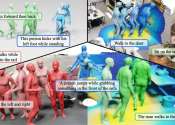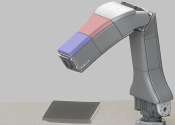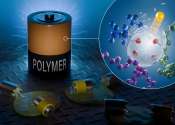Research team accelerates multi-physics simulations with El Capitan predecessor systems
Researchers at Lawrence Livermore National Laboratory (LLNL) have achieved a milestone in accelerating and adding features to complex multi-physics simulations run on Graphics Processing Units (GPUs), a development that could ...
3 hours ago
0
0









